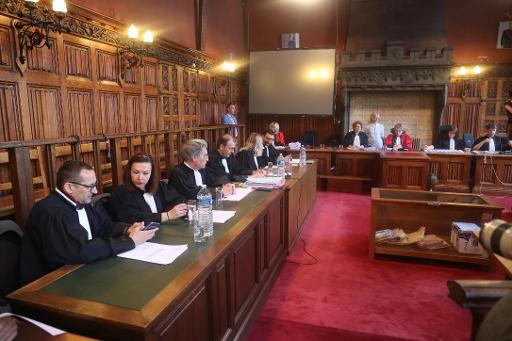The prosecution in the Valentin Vermeesch murder trial at the Liège Assize Court on Monday called for prison terms ranging from 29 years to life for the five persons indicted for torturing and killing the disabled 18-year-old in March 2017.
The five were found guilty of abducting and torturing Vermeesch, then throwing him with his hands bound behind his back into the Maas River on the night of 26 to 27 March 2017. They were also found guilty of battery, torture and inhuman treatment, while four of the five were indicted for rape.
Public Prosecutor Pascale Schils called for life imprisonment for Alexandre Hart and Belinda Donnay, and a prison term of 30 years - the legal maximum - for Killian Wilmet, who was a minor at the time. For Loïck Masson, the only one not indicted for rape, the prosecution asked the jury not to go below 30 years in prison, while it asked for 29 years in prison for Dorian Daniels, due to the remorse he expressed at the trial.
As a result, Daniels would be able to apply for conditional release in nine years. When the two years he spent on remand are factored in, he could be paroled in seven years.
Prosecutor Schils issued “an extremely tough indictment, but a slight difference was made for Dorian Daniels, due to his remorse and the attitude he adopted during the hearing,” the attorney for Daniels, Me. Séverine Solfrini, commented. “The aim of such a term is to request parole more quickly, and thus envisage a closer future, even if there is still work to be done.”
In her indictment, Schils stressed that Daniels had had “full use of his power, his strength. He was not forced by anyone. He chose to stay. He chose to save himself. He was selfish and cowardly to the end.” She added that the accused was “adult enough to know full well what he was doing” and, if he went to the police, it was not because he had a hard time living with his conscience, “but above all for fear that Alexandre might blame everything on him.”
She recalled that, according to the experts, he faces an uncertain future “because of the weakness of his moral outlook”. However, his situation is “potentially reversible” although there is still a risk of new infractions, Schils argued. “He needs a sentence that enables him to take stock of what is happening,” she said, adding that prison will be a “concrete limit to his acts.”
The Brussels Times

